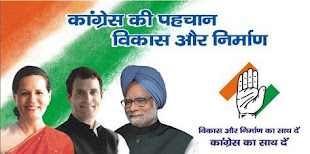R.C. Rajamani
“Let’s us annihilate the universe if even a single individual is denied food,” said the Tamil revolutionary poet Subramania Bharati a century ago. The Vedas and Hindu scriptures speak about the importance of food and its sacred nature. “Annadhan” (Giving food to the hungry) is regarded as the greatest of all charity as food sustains life on earth.
The World Food Day falls on October 16, the date of the founding of the Food and Agriculture Organization of the United Nations in 1945. And the theme for this year’s World Food Day is “Ensuring food security in times of crisis,” which is most appropriate as the world grapples with the problem of hunger across nations.
Climate change and bio-energy are the focus of this year’s World Food Day activities. ‘Global warming is already under way and adaptation strategies are now a matter of urgency, especially for the most vulnerable poor countries. Hundreds of millions of small-scale farmers, fishermen and forest-dependent people will be worst-hit by climate change,’ said Alexander Mueller, FAO assistant director-general for Natural Resources Management and Environment Department.
He further adds ‘Adaptation strategies, especially for the most vulnerable poor countries, where most of the over 920 million hungry people live, need to be urgently developed, reviewing land use plans, food security programmes, fisheries and forestry policies to protect the poor from climate change’.
Almost one billion people experience the hardship that hunger imposes, a figure which continues to rise. Despite the political commitment to reduce world hunger, the number of people lacking access to a minimum diet has risen from 824 million in the baseline year 1990 to 963 million in 2008. A further 750 million are assessed to be at risk.
Climate change due to global warming and the bio fuel boom are threatening to push the number of hungry even higher in times to come. In South and East Asia, the retreat of Himalayan glaciers and disruption to the stable monsoon pattern threaten the critical water cycle around which rice production in particular has evolved.
Ensuring food security to feed a fast growing population in the last couple of centuries has become a major challenge for governments the world over. Famine caused a large number of deaths in the 19th century and the early decades in the following century, due largely to spells of drought as well as low productivity in the absence of modern methods of agriculture. The later part of the 20th century posed another problem – population. As of first week of October 2009, Earth’s population as estimated by the United States Census Bureau is to be 6.8 billion. It is expected to reach about 9 billion by the year 2040.
India may be one of the world’s key emerging economies, but it is finding itself under increasing pressure from food security issues. As much as two-thirds of the country’s 1.1 billion inhabitants rely on farming as their main source of income, but 21 per cent less land is under cultivation in August 2009, than during the same period in August 2008. This is due to a reduction in the availability of water resources for agricultural purposes, deforestation and an uneven monsoon, which caused widespread flooding and droughts.
The theme of Food Security is a major preoccupation with agriculture scientists and policy makers as the UN observes the World Food Day. Rarely has this day assumed greater meaning than in present times as there is a strong need to expand global awareness to reduce the effect of severe climate patterns on agriculture and the impact of bio fuels on food production.
And any thought on the subject leads one to the name of Dr Norman Borlaug who died on September 12. His name is truly synonymous with food. No other scientist has contributed more than him towards higher food production and removing hunger from many parts of the world. As long time fellow scientist and friend Dr M.S. Swaminathan said, Borlaug burst on the scene at the appropriate time in history. “He was a bright, affirming flame in the midst of a sea of despair then prevailing. He was a man of extraordinary humanism, commitment to a hunger-free world and knew no nationality.”
With only 3% of the land area, India feeds 17% of (global) people. At the time of Independence, India’s wheat and rice yield was less than one metric tonne per hectare. It saw an increase in the area under the crops from 1947 to 1960. But there was no significant increase in production. “It was at that time he came to India. My association with him started when we started to work on how to achieve a yield breakthrough in wheat. He is the greatest hunger-fighter for all time. His contribution was multi-dimensional – scientific, political and humanistic,” says Dr Swaminathan.
It is appropriate to note that the Government is devoting time and energy to the subject of food security. It is proposing to bring in legislation, to be known as Food Security Act, to ensure a hunger-free nation. Implementation of various pro-poor legislations such as NERGA, also reflect the government’s commitment to remove hunger. There are also some important food-based interventions like the Public Distribution System (PDS), the Integrated Child Development Services (ICDS), and the Mid Day Meal Scheme (MDMS).



























0 Comments